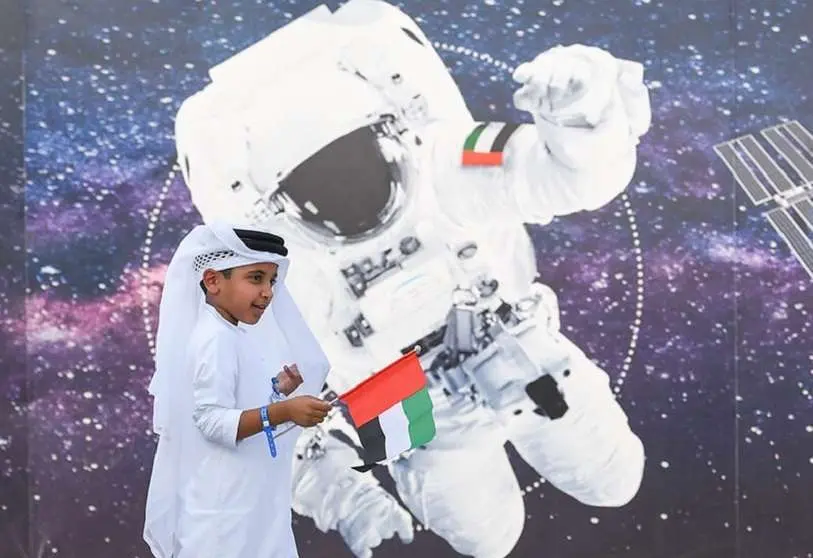Dubai creates ‘space court’ to solve commercial disputes

Dubai announced on Monday the creation of a "space court" to settle commercial disputes related to space activities. The court will be part of the Dubai International Financial Centre Courts (DIFC).
The DIFC, which was established in 2004 to deal with corporate and investor disputes, is based on common law and the British court system and is independent of United Arab Emirates (UAE) law.
“The Courts of Space is a global initiative that will operate in parallel, helping to build a new judicial support network to serve the stringent commercial demands of international space exploration in the 21st century," said Zaki Azmi, president of DIFC, in a statement.
Azmi said that as space commerce becomes more global, the complex commercial agreements that govern them “will also require an equally innovative judicial system to keep pace.”
Although numerous foreign companies have turned to the DIFC to arbitrate commercial disputes, the institution did not yet have courts specialised in the space activities of private companies.
"That was for us an eye opener that we need to provide the UAE with the right infrastructure (in case of disputes),” Amna al-Owais, chief registrar at DIFC Courts, told AFP news agency, citing as an example disputes related to the purchase and collision of satellites. According to the senior Emirati official, Companies and institutions based both in the UAE and abroad will now have the option of agreeing to take grievances to the tribunal, with new contracts potentially specifying the new “space court” as the forum for resolving disputes."The court will not necessarily apply an Emirati law," Al-Owais added.
International conventions and resolutions, such as the UN Space Treaty, which entered into force in 1967, currently govern space law. Several states have also signed bilateral and multilateral agreements in this field.
On the occasion of the 50th anniversary of the founding of the United Arab Emirates, the first Emirati mission to Mars is taking place. The "Hope" probe is about to complete the 495-million-kilometre journey to enter the orbit of the red planet this month.
"We had the launch taking place and the separation of the spacecraft from the launch vehicle. That took place about one hour after launch. And just right after that by about 20 minutes, we managed to receive the first signal from the spacecraft," project manager Omran Sharaf told Euronews.
After a seven-month journey at a speed of 121,000 km/hour, Hope's goal will be to study the climate and atmosphere of Mars, as well as to shed light "on the causes that led to the disappearance of water and the chances of life on the red planet", according to Emirati officials.
The Hope probe is a fully autonomous spacecraft with three instruments to measure the atmosphere of Mars. It weighs 1,350 kilos and was designed and developed by engineers from the Mohammed bin Rashid Space Centre in collaboration with the US universities of Colorado, Arizona and Berkeley. The probe was assembled at the University of Colorado Boulder and then shipped to Dubai and from there to the launch base at the Tanegashima Space Centre in Japan in mid-May last year.

The Emirati mission to Mars is the first in a series of three Mars projects to be completed in the coming weeks, including China's Tianwen-1 rover and the US Mars 2020 rover.
On 1 October 2019, the first Emirati astronaut returned to Earth after spending eight days on the International Space Station. During his stay, Hazza al-Mansoori conducted 16 scientific experiments related to microgravity, reaction of vital indicators of the human body on board the ISS, and other physical, biological and chemical research, several of them related to the growth of cells and cultures of small living beings.
Al-Mansoori's arrival in space was celebrated in the country as a national milestone. The Central Bank of the UAE minted a commemorative coin and the postal service issued a special series of stamps, while an image of the astronaut was projected on the Burj Khalifa skyscraper.
In September 2020, the Emirati authorities announced the Emirates Moon Exploration project, which aims to launch the "first Arab mission" to the moon in 2024. Although the details are unknown, according to the Emirati news agency WAM, it would be a manned mission.
If the Emirates' mission is completed on schedule, it will coincide with that of NASA, which has planned to send the first astronauts in more than half a century, including the first woman, to the moon in the same year. Initiatives that would also join Elon Musk's Space X and Jeff Bezos' Blue Origin.
"We have new space missions that we will announce soon," said Mohammed bin Rashid al-Maktoum, Emirates vice-president and emir of Dubai, at a meeting in September to review the strategy of the special centre that bears his name for the next decade. "There will be programmes to develop new specialised satellites and an outer space simulation centre for training, academic and educational programmes", he added.









